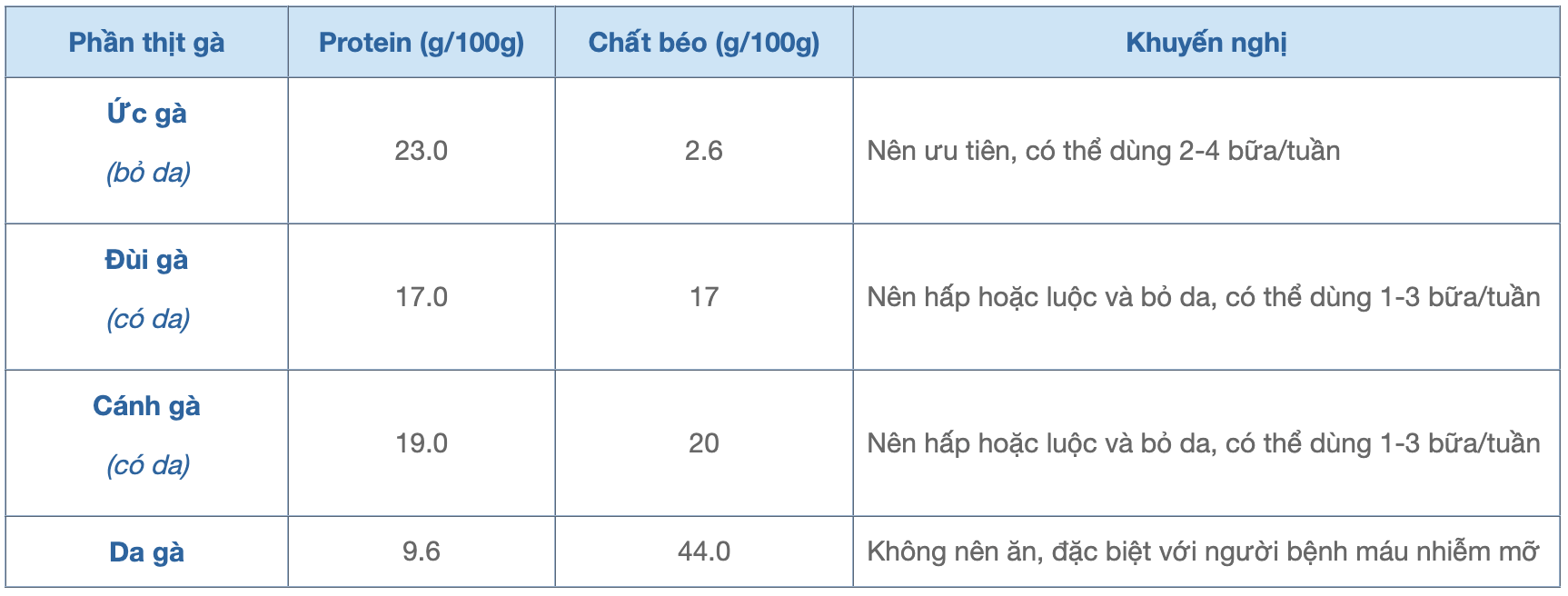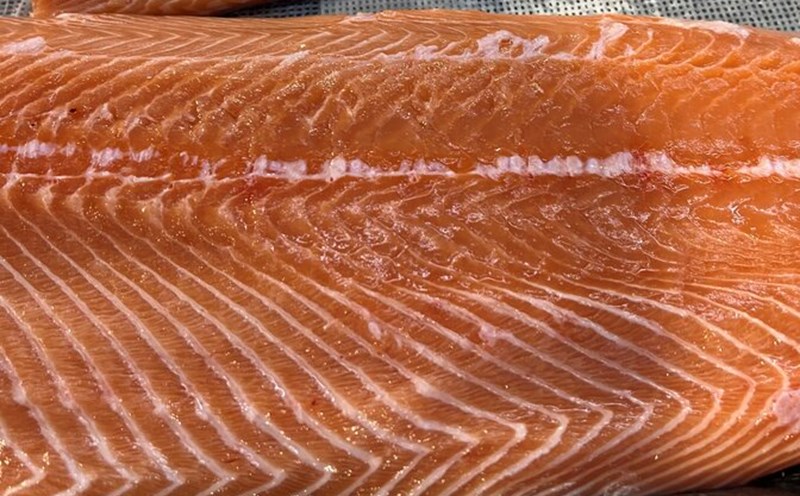People with high blood fat are always especially interested in their diet. In particular, chicken is a familiar food chosen by many people. Doctor Tran Thi Tra Phuong, Tam Anh General Hospital, has provided professional advice on notes when eating chicken for people with high blood cholesterol.
The impact of chicken on blood fat
According to nutritionists, chicken is a rich source of high-quality protein, providing all 9 types of amino acids that the body cannot synthesize on its own, helping the body maintain the necessary muscle mass.
When lean muscle mass is maintained, this indirectly supports the body's natural fat metabolism and burning process, because muscle cells are the type of tissue that requires energy to survive. They have metabolic and thermogenic activities, thereby supporting the natural fat burning process, including excess fat and triglycerides in the blood. This is also an important fact to help determine whether people with high blood fat can eat chicken.
People with high blood fat need to eat chicken properly
People with high blood fat can eat chicken, but need to consume it properly. The preparation should choose simple methods, filter out fat and skin, and eat in moderation. This is because chicken provides a lot of protein. On average, 100g of chicken breast can provide 23g of protein, helping the body maintain and develop lean muscle mass - the type of tissue that consumes more energy than fat tissue.
When the body has more muscle, the basal metabolic rate (BMR) increases, supporting the process of burning energy, including excess fat (cholesterol and triglycerides) in the blood.
In addition, eating enough protein can help reduce hunger, limiting excessive consumption of starch and fat - two groups of nutrients that easily increase cholesterol and blood triglycerides when consumed in excess.
In contrast, replacing part of carbohydrates with protein in your diet can help improve blood lipid levels, especially reducing LDL cholesterol (bad cholesterol) and increasing HDL (good cholesterol). Some amino acids from chicken protein (arginine, taurine) also have the ability to regulate the activity of liver enzymes - where blood lipids are synthesized and broken down.
Arginine: Supports the reduction of triglyceride and cholesterol synthesis in the liver, helping to improve blood lipid composition.
Taurine: Helps reduce total cholesterol (TC) and LDL cholesterol (bad cholesterol) levels in the blood, especially in people with metabolic diseases or those at risk of metabolic syndrome.

Thus, protein not only indirectly helps reduce blood fat through controlling lean muscle mass, but also contributes to regulating lipid metabolism directly through the liver.











